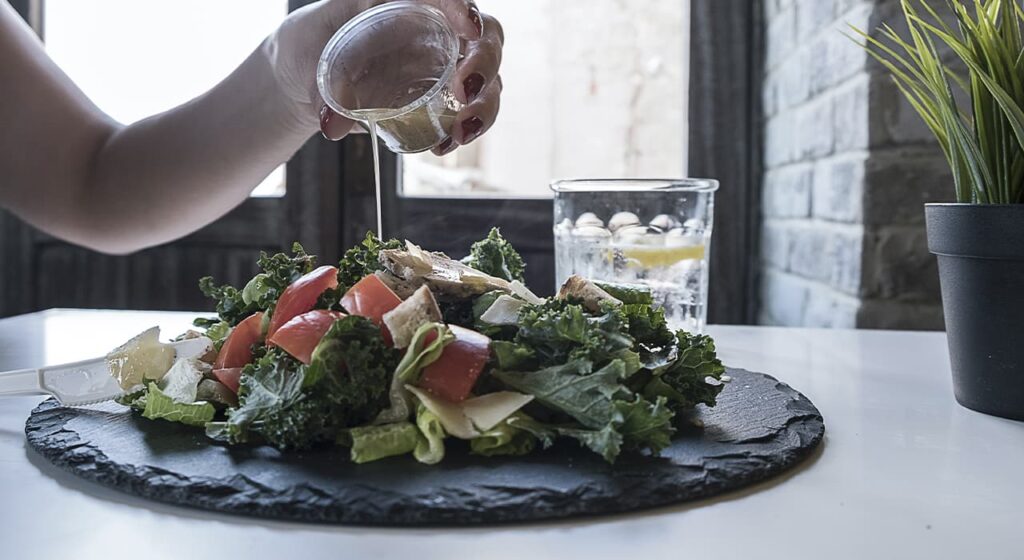This article is not about “sports nutrition”, i.e. anabolic preparations and various dietary supplements, information about which can be found on specialized resources, and the positive effect of which on the body raises certain doubts in our minds, but about how to eat regular food while doing sports.
The human body should receive daily a sufficient amount of carbohydrates and proteins, as well as some fats, vitamins, minerals and plenty of water. The effectiveness of sports activities is associated with a significant activation of protein synthesis in the working muscles. The formation of the necessary protein structures that provide specific muscle work is associated with increased gene activity and requires a complete protein diet. In people who are physically demanding, the diet must contain a certain proportion of essential and nonessential amino acids. Unfortunately, our normal diet does not provide sufficient amounts of easily digestible proteins, especially amino acids, in the right proportions. Therefore with intensive muscle activity there is a need for additional protein nutrition or the use of special products of increased biological value (with an optimal content of essential amino acids, vitamins, mineral salts, etc.).
The main function of proteins is to form and regenerate body tissues and cells. Carbohydrates are the main source of energy needed by the body during great physical exertion. Fats are the second most important source of energy. Physical activity requires more proteins, carbohydrates, and fats than none.
At high physical activity it is desirable to use, 5-6 meals a day. Such a diet is more physiological. The first breakfast is 5%, the second breakfast – 30%, additional meals after training – 5%, lunch – 30%, afternoon snack – 5%, dinner – 25% of daily calories. The volume of food should not be too large: 3 to 3.5 kg of food per day per 70 kg of body weight. Fruits and vegetables should constitute 10-15% of the diet.
On sports days, breakfast and lunch should be nutritious. In the afternoon, at about 2-hour intervals, you should eat several meals. It should be a food high in carbohydrates, it will give you strength before you start exercising. Drink plenty of water throughout the day, especially in the last hour before you start.
Try as little as possible to eat foods that are difficult to digest, such as cabbage, beans, lentils, beans, peas, pork and lamb fat. It is better to use such foods less often than others and only after training sessions. An important point is the variety of food, as well as quality cooking of food. Ground, boiled, steamed meat, pureed legumes, oatmeal in the form of kissel with milk are easier to digest. Frequent repetition of dishes and monotonous foods are undesirable. Neutral soups should be alternated with sour soups. It is desirable to avoid the same side dishes. In hot climates, the caloric content should be slightly reduced. In cold climates it is necessary to increase the consumption of protein, but the amount of consumed fats should be reduced.
Pre-exercise nutrition
The body cannot digest large amounts of food during exercise, so it is unwise to eat right before exercising. But it takes a lot of energy to exercise. Carbohydrates are the best source of energy, so they should be included in breakfast or lunch 3 hours before exercise or eat small portions no later than an hour before exercise. Carbohydrate-rich foods include oatmeal with skim milk, boiled potatoes, crispbread, crackers, toast, and bread with jam or honey.
Nutrition after sports activities
If you have worked out physically well but have not eaten for 5 hours, your blood glucose levels drop so much that exercise proves excessive. Even if there are no obvious painful sensations, it still negatively affects your stamina and ability to concentrate while exercising. Try to eat within two hours of finishing exercise. If exercise suppresses your appetite, snack on something high carbohydrate as soon as possible. Here are some dishes that are perfect for this: oatmeal cookies, fruitcake, pasta with vegetables, fish or chicken, baked potatoes with low-fat seasoning, a salad of boiled rice and sweet corn, fruit salad with oatmeal, vegetable stew.
Carbohydrates are digested at different rates, so blood sugar levels can rise slowly or quickly.
The starches found in potatoes, bread, and rice give up their energy slowly, while simple carbohydrates found in jam, honey, fruit, and juices give up their energy quickly.
